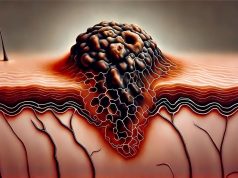Some evidence of positive link seen for genetically predicted alcohol consumption with CAD, a-fib, AAA
TUESDAY, May 5, 2020 (HealthDay News) — Higher alcohol consumption may be causally associated with an increased risk for stroke and peripheral artery disease, according to a study published online May 5 in Circulation: Genomic and Precision Medicine.
Susanna C. Larsson, Ph.D., from Uppsala University in Sweden, and colleagues examined the effect of alcohol consumption on eight cardiovascular diseases using Mendelian randomization (MR). Instrumental variables for alcohol consumption included up to 94 single nucleotide polymorphisms.
The researchers found that across the different analyses, genetically predicted alcohol consumption was consistently associated with stroke and peripheral artery disease. In the inverse-variance weighted analysis, the odds ratios per 1 standard deviation increase of log-transformed alcoholic drinks per week were 1.27 (95 percent confidence interval [CI], 1.12 to 1.45) and 3.05 (95 percent CI, 1.92 to 4.85) for stroke and peripheral artery disease, respectively. Some evidence was found for positive associations of genetically predicted alcohol consumption with coronary artery disease, atrial fibrillation, and abdominal aortic aneurysm (odds ratios, 1.16 [95 percent CI, 1.00 to 1.36], 1.17 [95 percent CI, 1.00 to 1.37], and 2.60 [95 percent CI, 1.15 to 5.89], respectively). In a multivariable MR analysis adjusted for smoking initiation, these associations were somewhat attenuated. No evidence was seen for associations of genetically predicted alcohol consumption with heart failure, venous thromboembolism, or aortic valve stenosis.
“This MR study provides evidence that higher alcohol consumption may be causally associated with increased risk of stroke and peripheral artery disease,” the authors write.
Copyright © 2020 HealthDay. All rights reserved.








